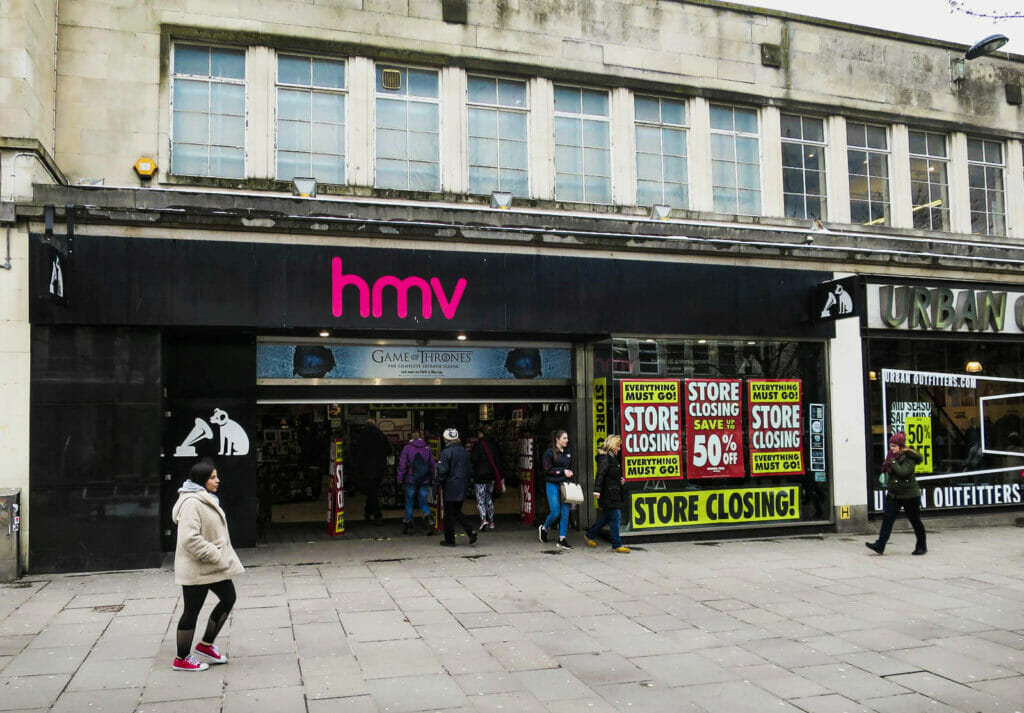Internet Shopping, Business Rates and the End of the British High Street
16 May 2023, by Verity Editor

16 May 2023, by Verity Editor

If you’ve ventured onto the high street of any small town in Britain lately, you may have noticed a worrying trend that only seems to be spreading. Through a combination of factors, including the COVID pandemic, Britain’s high streets are dying out, with empty retail units standing in the place of once-thriving shops. But how did we get here? And what role are Business Rates playing?
When the UK lockdown hit and shops were forced to shut, retail records were broken and a third of all retail outlay was attributed to online sales.
With a rapid decrease in high street footfall and a steep elevation in web traffic, many British retailers invested millions of pounds in adapting to digital strategies, analytics, web and mobile experiences.
In fact, Britain has surpassed any other countries efforts in adapting to digital, but can you blame them, with over 20% of the UK’s consumers shopping almost exclusively online.
What happened to the retailers with a strong high street presence? Well, those were the ‘big name’ brands, such as those in the Arcadia Group, who we saw fall victim last year.
Of course, online shopping and the global pandemic aren’t the only causes of the UK high street crisis. The ever-changing political landscape and Business Rates also hold some responsibility for the high streets desperate state.
For commercial property owners, Business Rates – in particular Empty Rates – are a significant challenge which contributes to vanishing high streets. When a commercial property is unoccupied for longer than three months – a common occurrence with internet shopping pricing out physical competitors – the building’s owner becomes liable for empty rates.
One of the main difficulties surrounding empty rates is understanding them. For example, although relief is available, applying for it is a complex and timely process which can often see commercial property owners missing out on assistance.
With rising commercial property prices, it can be especially difficult for owners to sell off a property when the empty rates payments threaten to financially cripple them. This forms a never-ending cycle, which results in more and more shops being abandoned or sold for development, and high streets vanishing altogether.
Preparation really is key. If you’re a landlord of a commercial property, keep these three steps in mind.
At Verity, we want to play our part in keeping the high street alive, by supporting commercial property owners and ensuring that they’re free to find new tenants whilst we handle their empty rates liabilities. And who knows: by working together like this, we might just be able to save Britain’s high streets.
Do you have a vacant commercial property which you’re liable for? Or are you simply keen to prepare in advance? Feel free to explore our website, or alternatively get in touch and let Verity take the pressure off you.

Jozef and his team @ Verity are efficient and understand the process well to make it easy for the Landlords resulting in a successful outcome every time.
Joseph Lewenstein
| Cookie | Duration | Description |
|---|---|---|
| cookielawinfo-checkbox-advertisement | 1 year | Set by the GDPR Cookie Consent plugin, this cookie records the user consent for the cookies in the "Advertisement" category. |
| cookielawinfo-checkbox-analytics | 11 months | This cookie is set by GDPR Cookie Consent plugin. The cookie is used to store the user consent for the cookies in the category "Analytics". |
| cookielawinfo-checkbox-functional | 11 months | The cookie is set by GDPR cookie consent to record the user consent for the cookies in the category "Functional". |
| cookielawinfo-checkbox-necessary | 11 months | This cookie is set by GDPR Cookie Consent plugin. The cookies is used to store the user consent for the cookies in the category "Necessary". |
| cookielawinfo-checkbox-others | 11 months | This cookie is set by GDPR Cookie Consent plugin. The cookie is used to store the user consent for the cookies in the category "Other. |
| cookielawinfo-checkbox-performance | 11 months | This cookie is set by GDPR Cookie Consent plugin. The cookie is used to store the user consent for the cookies in the category "Performance". |
| CookieLawInfoConsent | 1 year | CookieYes sets this cookie to record the default button state of the corresponding category and the status of CCPA. It works only in coordination with the primary cookie. |
| viewed_cookie_policy | 11 months | The cookie is set by the GDPR Cookie Consent plugin and is used to store whether or not user has consented to the use of cookies. It does not store any personal data. |
| Cookie | Duration | Description |
|---|---|---|
| _ga | 1 year 1 month 4 days | Google Analytics sets this cookie to calculate visitor, session and campaign data and track site usage for the site's analytics report. The cookie stores information anonymously and assigns a randomly generated number to recognise unique visitors. |
| _ga_* | 1 year 1 month 4 days | Google Analytics sets this cookie to store and count page views. |


